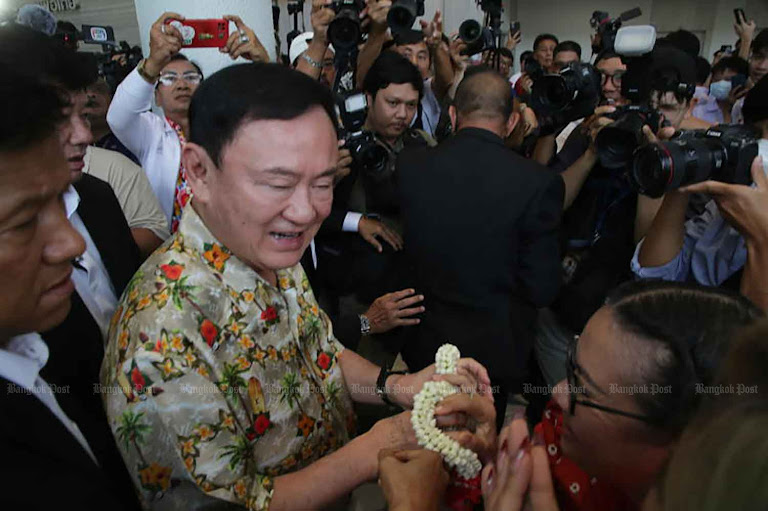Thailand’s Top Court Investigates if Thaksin Got Special Treatment
Supreme Court inquiry into his extended stay, triggered by a formal petition, questions potential preferential treatment and erodes trust.

The return of Thaksin Shinawatra, the former Thai prime minister, from self-imposed exile was always going to be a high-stakes gamble. His swift imprisonment, subsequent transfer to a hospital, and eventual royal pardon hinted at the complex power dynamics at play in Thailand. Now, as detailed in a recent Bangkok Post report, a Supreme Court inquiry into the legality of his hospital stay threatens to unravel the fragile political equilibrium and further erode public trust in the justice system.
This isn’t just about the technicalities of prison regulations. It’s about the perception, and perhaps the reality, of preferential treatment for a powerful figure. The inquiry, launched after a petition alleging the Department of Corrections violated procedure, raises fundamental questions about the rule of law in Thailand. If Shinawatra, the de facto leader of the ruling Pheu Thai Party, received special consideration, it reinforces the sense that the system is rigged in favor of the elite. This perception is deeply corrosive, fueling cynicism and potentially destabilizing a nation already grappling with economic and political challenges.
The potential consequences of the court’s decision are multifaceted:
- If the court finds against Shinawatra, he could return to prison, significantly impacting his political influence and potentially demoralizing Pheu Thai supporters.
- A ruling in his favor, however, risks further damaging public trust in the judiciary, fostering the belief that the powerful operate above the law.
- The inquiry itself puts intense scrutiny on the Department of Corrections and the hospital involved, potentially exposing systemic weaknesses and vulnerabilities to political pressure.
It’s also critical to understand this episode within the larger context of Thai politics. Shinawatra’s career has been marked by both immense popularity and accusations of corruption and abuse of power. He represents a populist force that challenges traditional power structures, and his return has inevitably heightened tensions. This latest legal challenge, regardless of the outcome, is likely to be interpreted through the lens of these ongoing political battles.
The Thaksin Shinawatra case is not just a legal matter; it’s a political barometer. It measures the resilience of Thailand’s democratic institutions and the public’s faith in their ability to deliver impartial justice.
The timing of the inquiry, as Thailand navigates a complex political landscape and economic uncertainty, is particularly fraught. The Bhumjaithai Party, a key coalition partner, may see an opportunity to capitalize on any instability, potentially leading to a reshuffling of power.
Shinawatra still faces a separate lese majeste charge, adding another layer of complexity to his legal and political woes. This case, centered around comments he made in 2015, further highlights the delicate balance between free speech and the sensitivities surrounding the monarchy in Thailand.
Ultimately, this story isn’t just about one man’s legal fate. It’s about the health of Thai democracy. The Supreme Court’s decision will have far-reaching consequences, shaping public perception of the justice system, influencing political alliances, and potentially determining the direction of the country. It’s a reminder that even seemingly technical legal disputes can expose deep societal fissures and have profound implications for the future.









